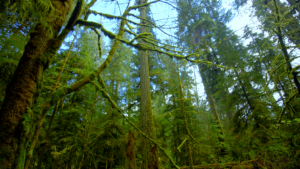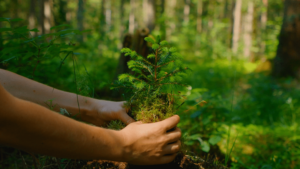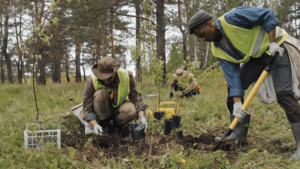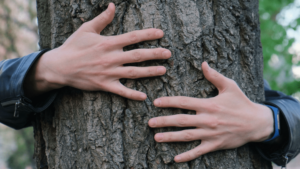___
By Rodaportal
INTRODUCTION
Forests are the lungs of the planet and for this reason, cannot be undervalued.
Forests are necessary for life on Earth. They clean the air we breathe, filter the water we drink, prevent soil erosion, and serve as a critical buffer against climate change. Forests are home to a wide variety of plants and animals, as well as critical natural resources ranging from lumber and food to medicinal herbs. Forests also contribute to the well-being of local populations.
It is critical to recognize that forests represent the foundation of all life on Earth and are essential to human existence. However, woodlands all across the world are under threat. Despite the vital role that forests play in the world’s environmental and economic health, we continue to lose forests and the endangered creatures that inhabit them.
More than 12 million hectares of tree cover were lost in the tropics by 2020. Illegal logging, poor forest management practices, and rising demand for forest and agricultural goods all contribute to the loss of these ecosystems. The conversion of natural forests to other land uses, such as pulp, palm oil, and soy plantations, is responsible for much of the world’s forest loss.

Deforestation contributes to climate change by accounting for 15% of Worldwide Greenhouse Gas Emissions. Mature forests store carbon in wood, leaves, and soil after absorbing CO2 from the atmosphere during growth. When people cut forested areas and destroy the wood, they release carbon.
When forest cover is lost, biodiversity suffers greatly. This can result in the loss of habitat, food supplies, and migration routes for species. Human-wildlife conflicts, such as hunting and poaching, are becoming more common as habitat declines and new logging roads reach previously unlogged regions. Tropical rainforests are home to around 80% of the world’s recorded species, implying that destruction threatens the bulk of the planet’s biodiversity.
For these reasons and the beauty of our world, you must conserve forests by following some of the guidelines below.
Plant New Trees
Without question, the most direct approach to helping trees is to plant them yourself. Whether you plant a single new tree in your garden or a group of trees, your efforts will have a big positive influence on the globe and climate change. According to the National Wildlife Federation, one tree may absorb more than one ton of CO2 throughout its lifetime. That is more than 2,000 miles travelled by the average automobile.

Conserve Trees and Forests in your Area.
Encourage your local government to protect forests, build parks, and oppose harmful suburban sprawl and other developments. If you own wooded land, consider a conservation easement or volunteering with a local land trust or parks and recreation department.
Learn about Forests, both Local and Global.
Learn about forests, their significance, and the problems they confront. The more you study these amazing ecosystems, the more you will appreciate their beauty, complexity, and crucial role in the health of our world. There are several wonderful books, websites, and videos to study.

Use Tree-Free Products
Alternatives to traditional wood or paper materials are becoming increasingly popular. Bamboo goods, in particular, are gaining popularity. Bamboo toilet paper, toothbrushes, paper towels, and other environmentally friendly products have become modern green mainstays.
Furthermore, bamboo goods are soft, sturdy, and completely sustainable! Bamboo stalks begin to grow again very quickly after being harvested, without the need for reseeding or fertilizer.

Visit forests often.
Spend some time in forests and green landscapes; they are breathtaking. You will get a deeper appreciation for and connection with nature and the benefits to your health and well-being. As the globe becomes more urbanized and individuals spend more time online, society becomes more isolated and separated from nature. So go out there! Hike or camp, have a picnic, or attempt to locate some birds.

Support Conservation Organizations.
You can’t always directly safeguard trees. Fortunately, several groups work to protect the world’s woods. We’ve compiled a list of organizations to get you started. Links are provided in the video description.
– World Wide Fund for Nature promotes global nature and wildlife conservation.
– Plant a Tree Today supports forests and green living.
– One Tree Planted plants trees in various countries around the world.
With the world’s population expected to exceed 10 billion by 2100, there is an increasing demand for environmentally friendly means of producing food, shelter, and fuel. Forests are one of our planet’s most essential ecosystems, and they supply us with several advantages. We may lose this vital resource forever if we do not protect it.
So, Did you discover anything new today? Can you think of any other interesting fact we should include? Leave them in the comments section below; we enjoy hearing from you!

Watch Our Video on Saving Forests
If you want to learn more about the importance of saving forests and the impact of deforestation, check out our video at [https://youtu.be/FO8KPXcH59E]. In the video, we delve deeper into the critical issues surrounding our forests and share more tips on how you can contribute to their preservation. Join us in the mission to save our precious forests and protect the future of our planet. #SaveOurForests
